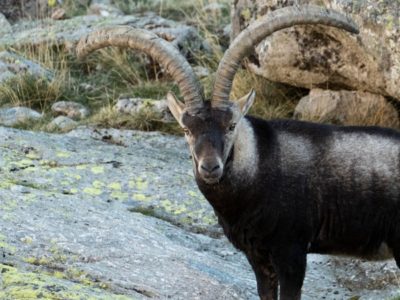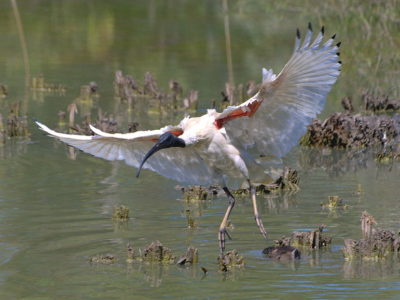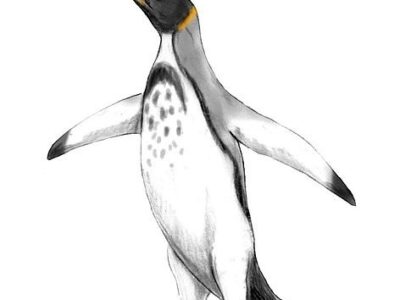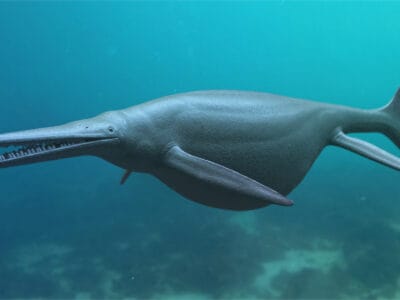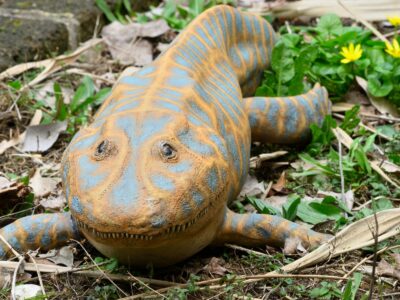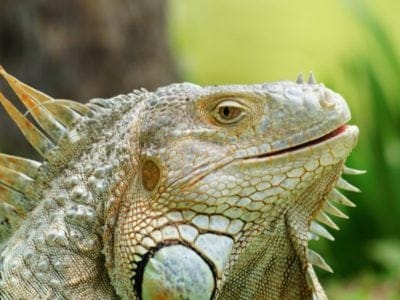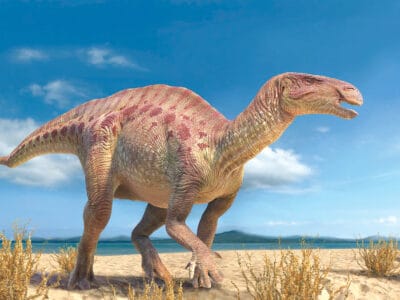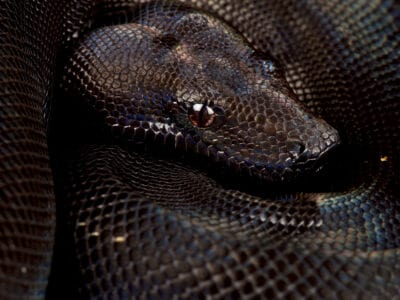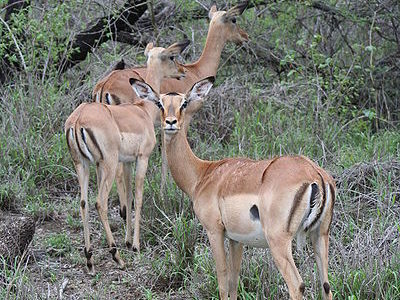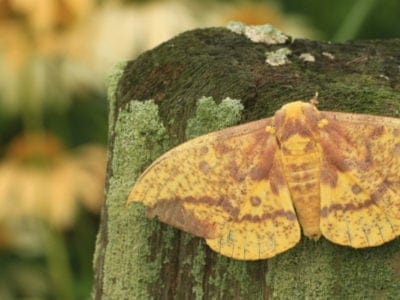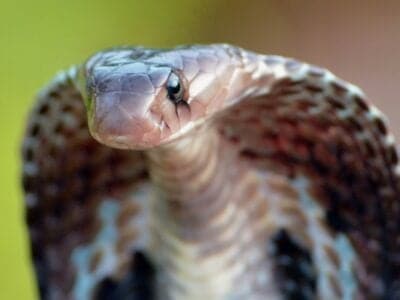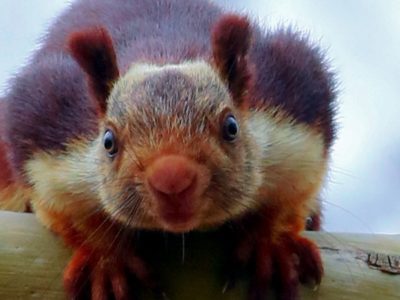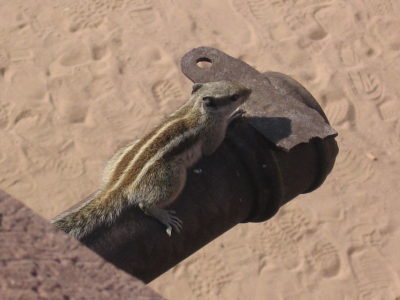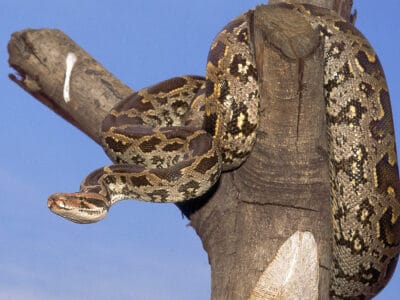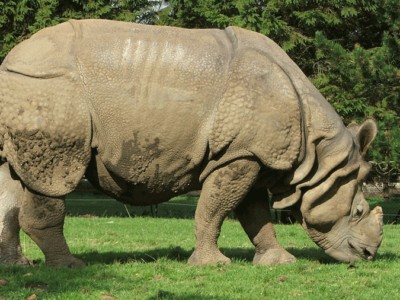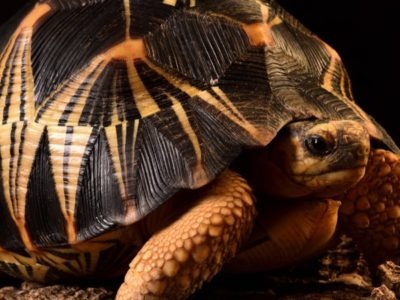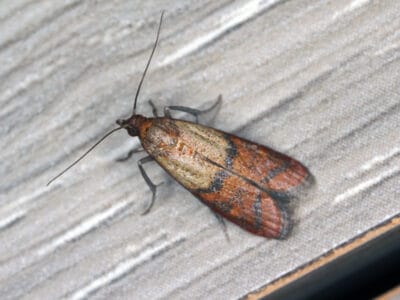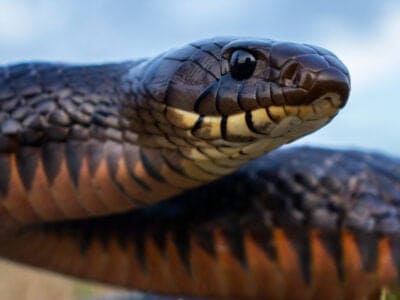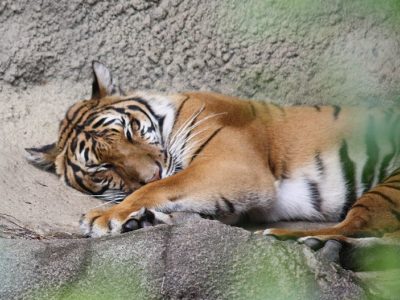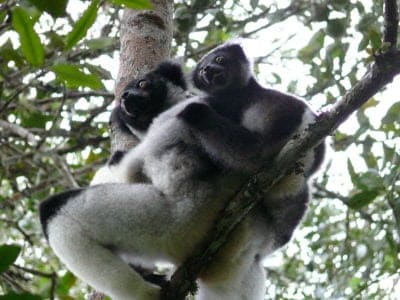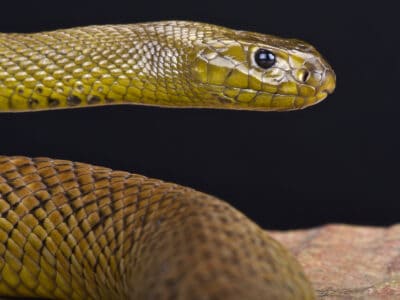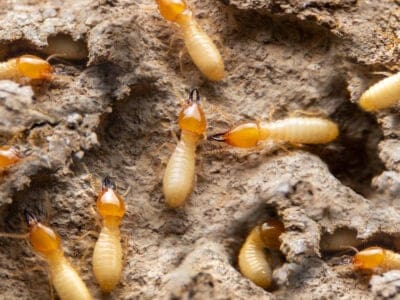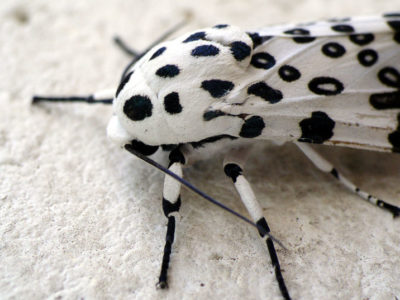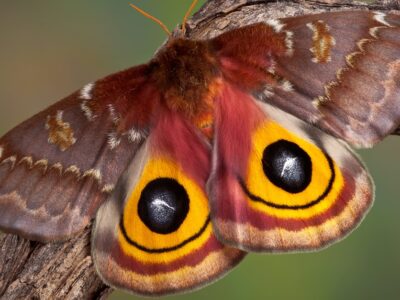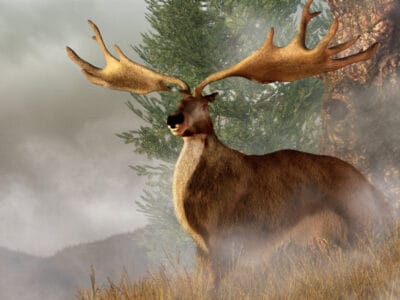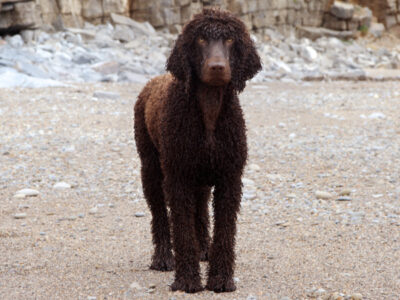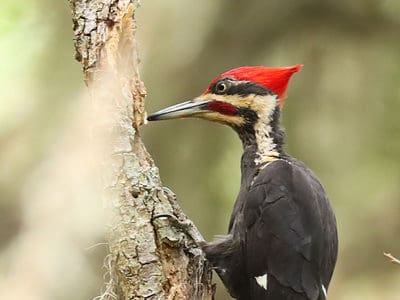Read below for information on 39 different animals that start with the letter I, from ibis to indri. The most popular animal that starts with the letter I is the iguana, a common exotic pet. The least popular I animal is the Indian Star Tortoise, so named for the unique star patterns on its shell. Some fun facts about letter I name animals are:
- Impalas can jump as high as 10 feet and run over 50 miles an hour
- Indian palm squirrels are considered sacred in India and an invasive species in Australia
- Often domesticated and previously used in battle, the wild Indian elephant population is estimated at only about 20,000 today.
Jump to any letter
Alphabetical List of Animals That Start with I
- Ibex
- Ibis
- Ibizan Hound
- Icadyptes
- Icelandic Sheepdog
- Ichthyosaurus
- Ichthyostega
- Iguana
- Iguanodon
- IMG Boa Constrictor
- Immortal Jellyfish
- Impala
- Imperial Moth
- Inchworm
- Indian Cobra
- Indian Elephant
- Indian Giant Squirrel
- Indian Palm Squirrel
- Indian python
- Indian Rhinoceros
- Indian Star Tortoise
- Indianmeal Moth
- Indigo Snake
- Indochinese Tiger
- Indri
- Inland Taipan
- Insect
- Insects
- Io Moth
- Irish Doodle
- Irish Elk
- Irish Setter
- Irish Terrier
- Irish Water Spaniel
- Irish WolfHound
- Irukandji Jellyfish
- Italian Greyhound
- Ivory-billed woodpecker
- Ivy Bee
Animals that Start with I
Ibex
- Kingdom
- Animalia
- Phylum
- Chordata
- Class
- Mammalia
- Order
- Artiodactyla
- Family
- Bovidae
- Genus
- Capra
Fun Fact: Can jump over 6 feet straight up from a standstill
As one of the main ancestors of the domestic goat, the ibex is a common sight in the mountains of Europe, western Asia, and northeastern Africa. There are five main species, but some data shows as many as eight when counting subspecies. Ibex are wild goats with cloven hoofs and very long horns that curve […] Read More
Ibis
- Kingdom
- Animalia
- Phylum
- Chordata
- Class
- Aves
- Order
- Ciconiiformes
- Family
- Threskiornithidae
- Scientific Name
- Threskiornithidae
Fun Fact: Found in swamps, marshes and wetlands!
The Ibis was venerated by Ancient Egyptians as sacred, but no species of the bird currently inhabits modern Egypt. With species found across all continents minus Antarctica, the Ibis, a type of bird, is one of the best-known wading birds in the world. Nearly 30 different species are currently extant, but they vary considerably in […] Read More
Ibizan Hound
- Kingdom
- Animalia
- Phylum
- Chordata
- Class
- Mammalia
- Order
- Carnivora
- Family
- Canidae
- Genus
- Canis
- Scientific Name
- Canis lupus
Fun Fact: Intelligent, active and engaging by nature!
An Ibizan Hound is a hound dog that originated from the Balearic Islands off the Mediterranean Coast. They were initially used to help hunt rabbits about 3,000 years ago by Phoenician traders. The Phoenician traders brought hounds to the island from Egypt to assist with catching food. Ibizans can make an exceptional family pet. They […] Read More
Icadyptes
- Kingdom
- Animalia
- Phylum
- Chordata
- Class
- Aves
- Order
- Sphenisciformes
- Family
- Spheniscidae
- Genus
- Icadyptes
- Scientific Name
- Icadyptes salasi
Fun Fact: Unlike present-day pengiuns, Icadyptes lived in a warm habitat near the equator.
Icadyptes is a group of giant aquatic birds that once existed in the South American tropics during the Late Eocene. They’re members of the Sphenisciformes family, meaning they are modern penguins’ ancestors. Expectedly, they were significantly larger and lived in completely different environments compared to present-day penguins. Only one species, Icadyptes salasi, has been identified […] Read More
Icelandic Sheepdog
- Kingdom
- Animalia
- Phylum
- Chordata
- Class
- Mammalia
- Order
- Carnivora
- Family
- Canidae
- Genus
- Canis
- Scientific Name
- Canis lupus
Fun Fact: The Icelandic Sheepdog is the only dog breed entirely native to Iceland.
One of the most interesting features of the Icelandic Sheepdog is that it seems to always wear a happy and friendly facial expression, as if it’s fixed in a smile. The Icelandic Sheepdog is an affectionate and lovable herding breed that hails from the cold and rocky environs of Iceland. There are many interesting facts […] Read More
Ichthyosaurus
- Kingdom
- Animalia
- Phylum
- Chordata
- Class
- Reptilia
- Order
- Ichthyosauria
- Family
- Ichthyosauridae
- Genus
- Ichthyosaurus
- Scientific Name
- Ichthyosaurus communis
Fun Fact: Gave birth to live young instead of laying eggs like other reptiles
There are already some fearsome predators swimming around our oceans. Now, imagine a dolphin-like creature with giant eyes that could swim down to the ocean’s darkest depths to hunt fearsome creatures like the giant squid. That describes the extinct ichthyosaurus. The name ichthyosaurus means fish and lizard, which is a pretty good description of what […] Read More
Ichthyostega
- Kingdom
- Animalia
- Phylum
- Chordata
- Order
- Ichthyostegalia
- Family
- Ichthyostegidae
- Genus
- Ichthyostega
- Scientific Name
- Ichthyostega stensioei
Fun Fact: Ichthyostega was one of the first aquatic animals to venture on land
Ichthyostega is a genus of aquatic animals closely related to the four-legged land vertebrates (tetrapods). The Ichthyostega lived during the Devonian Period about 370 million years ago. Initially considered an aquatic tetrapod because it possessed four limbs and fingers, paleontologists now know that it lived before the first tetrapods arrived on the scene. The Ichthyostega […] Read More
Iguana
- Kingdom
- Animalia
- Phylum
- Chordata
- Class
- Reptilia
- Order
- Squamata
- Family
- Iguanidae
Fun Fact: Uses visual signals to communicate!
Native to the jungles of Central and South America and many islands in the Caribbean, Iguanas are large lizards that are also popular with Americans who want to keep them as pets. The name iguana comes from the original Taino name for these lizards, iwana. Green iguanas are the most widely known species as they […] Read More
Iguanodon
- Kingdom
- Animalia
Fun Fact:
The Iguanodon is a large herbivorous dinosaur that lived in the Late Jurassic and Early Cretaceous periods (between 161.2 to 99.6 million years ago). The fossil distribution shows the species lived predominantly in Europe but might have lived in North Africa and North America as well. The Iguanodon was first identified and named based on […] Read More
IMG Boa Constrictor
- Kingdom
- Animalia
- Phylum
- Chordata
- Class
- Reptilia
- Order
- Squamata
- Family
- Boidae
- Genus
- Boa
- Scientific Name
- Boa Constrictor
Fun Fact: The first IMG boa was born in a litter of anerythristic boas.
The IMG boa constrictor changes color as it ages, often becoming almost black. Designer snakes have been popular among ball pythons for a few decades. However, boa constrictors have fewer color and pattern mutations, so breeders constantly seek to develop new and beautiful colors for snake enthusiasts. 4 Incredible Facts Scientific Name and Classification Boa […] Read More
Immortal Jellyfish
- Kingdom
- Animalia
- Phylum
- Cnidaria
- Class
- Hydrozoa
- Order
- Anthoathecata
- Family
- Oceaniidae
- Genus
- Turritopsis
- Scientific Name
- Turritopsis dohrnii
Fun Fact: Excellent hitchhiker on long-trip cargo ships
The immortal jellyfish can regenerate and live forever. The immortal jellyfish, sometimes called the Benjamin Button jellyfish, is one of the only known animals that possess full regenerative capabilities, as well as being the only species of jellyfish with an indefinite lifespan. It was first documented in 1883 in the Mediterranean Sea. However, researchers and […] Read More
Impala
- Kingdom
- Animalia
- Phylum
- Chordata
- Class
- Mammalia
- Order
- Artiodactyla
- Family
- Bovidae
- Genus
- Aepyceros
- Scientific Name
- Aepyceros Melampus
Fun Fact: Able to jump over 10 feet high
When startled, an impala animal can jump up to 10 feet high. Impala are animals that live in the light woodlands and savannahs of southern and eastern Africa. These medium-sized antelopes travel and gather in herds of hundreds during the rainy season. The rains bring an abundance of grasses, shoots, herbs, bushes, and shrubs for […] Read More
Imperial Moth
- Kingdom
- Animalia
- Phylum
- Arthropoda
- Class
- Insecta
- Order
- Lepidoptera
- Family
- Saturniidae
- Genus
- Eacles
- Scientific Name
- Eacles imperialis
Fun Fact: Since the imperial moth doesn’t eat, it does die shortly after it lays its eggs. Its lifespan is only about one week.
Since the imperial moth doesn’t eat, it does die shortly after it lays its eggs. Its lifespan is only about one week. “The moth that looks like a dead leaf!” The imperial moth is one of the most widespread, large, and beautiful of the silkworm moths. Its coloration mimics an autumn leaf, which probably hides it […] Read More
Inchworm
- Kingdom
- Animalia
- Phylum
- Arthropoda
- Class
- Insecta
- Order
- Lepidoptera
- Family
- Geometridae
Fun Fact: Inchworms have no legs in the midsection of their body.
Inchworms are the larvae of the geometer moth (family Geometridae). The caterpillar gets its name from its unique movement style, which seems like they’re measuring the ground. They move this way because they don’t have legs in the midsection of their body. Inchworms are mainly herbivorous, feeding on the bark, branches, and other parts of […] Read More
Indian Cobra
- Kingdom
- Animalia
- Phylum
- Chordata
- Class
- Reptilia
- Order
- Squamata
- Family
- Elapidae
- Genus
- Naja
- Scientific Name
- Naja naja
Fun Fact: One of the Big Four.
“With its powerful venom and distinctive appearance, the Indian cobra, also known as the spectacled cobra, is among the most dangerous snakes in the world.“ In India, this cobra is considered to be one of the “big four” snakes that are responsible for the majority of bites and deaths every year. As an important religious […] Read More
Indian Elephant
- Kingdom
- Animalia
- Phylum
- Chordata
- Class
- Mammalia
- Order
- Proboscidea
- Family
- Elephantidae
- Genus
- Elephas
- Scientific Name
- Elephas maximus indicus
Fun Fact: Found throughout south-east Asia!
Indian elephants are incredibly intelligent and expressive. Indian elephants are greyish-black animals that are subspecies of the Asian elephant. They are about 6.6 to 11.5 feet in height and weigh about 6000 to 11,000 pounds. These elephants go by the scientific name Elephas maximus indicus and have long trunks that are completely boneless. The trunks […] Read More
Indian Giant Squirrel
- Kingdom
- Animalia
- Phylum
- Chordata
- Class
- Mammalia
- Order
- Rodentia
- Family
- Sciuridae
- Genus
- Ratufa
- Scientific Name
- Ratufa indica
Fun Fact: Indian giant squirrels use their large tail to help them balance.
“Indian Giant Squirrel is the largest squirrel in India!” The Indian giant squirrel is a large rodent species native to India. More specifically, it is a type of tree squirrel. This animal’s appearance is unlike most other squirrel species due to its vivid colors and notable size. The Indian giant squirrel is also often called […] Read More
Indian Palm Squirrel
- Kingdom
- Animalia
- Phylum
- Chordata
- Class
- Mammalia
- Order
- Rodentia
- Family
- Sciuridae
- Genus
- Funambulus
- Scientific Name
- Funambulus Palmarum
Fun Fact: Natively found in parts of India and Sri Lanka!
Considered sacred in India, this Indian squirrel species has become an invasive threat in countries like Australia It’s not just cows that are considered sacred in India. In Hindu texts, a powerful deity named Lord Rama was building a bridge over the sea to help him find his kidnapped wife when a squirrel helped by […] Read More
Indian python
- Kingdom
- Animalia
- Phylum
- Chordata
- Class
- Reptilia
- Order
- Squamata
- Family
- Pythonidae
- Genus
- Python
- Scientific Name
- Python molurus
Fun Fact: Kaa from Rudyard Kipling's The Jungle Book was an Indian Python.
Indian pythons are slow-moving, relatively docile, giant snakes. These snakes are native to the Indian subcontinent and several surrounding countries. They aren’t aggressive and can live to be 30 years old. Incredible Indian Python Facts The snake that mentored Mowgli in Rudyard Kipling’s The Jungle Book, Kaa, was an Indian python.Females can lay up to […] Read More
Indian Rhinoceros
- Kingdom
- Animalia
- Phylum
- Chordata
- Class
- Mammalia
- Order
- Perissodactyla
- Family
- Rhinocerotidae
- Genus
- Rhinoceros
- Scientific Name
- Rhinoceros Unicornis
Fun Fact: Also known as the one-horned rhino!
This one-horned ‘armored unicorn’ once roamed across India and Nepal, but today is rebounding from near extinction. The Indian rhinoceros (also known as the greater one-horned rhinoceros and the Asian one-horned rhinoceros) is a species of rhinoceros native to parts of India and Nepal. Although the Indian rhinoceros is still under threat today, its numbers […] Read More
Indian Star Tortoise
- Kingdom
- Animalia
- Phylum
- Chordata
- Class
- Reptilia
- Order
- Testudines
- Family
- Testudinidae
- Genus
- Geochelone
- Scientific Name
- Geochelone elegans
Fun Fact: Popular in the exotic pet trade!
With its unique star-shaped patterns and relatively compact size, the Indian star tortoise is one of the most striking tortoises on the planet. Found in forests, grasslands, and shrublands across much of India, Pakistan, and Sri Lanka, the species has a high tolerance for seasonally wet or dry habitats and therefore is fairly adaptable. Unfortunately, […] Read More
Indianmeal Moth
- Kingdom
- Animalia
- Phylum
- Arthropoda
- Class
- Insecta
- Order
- Lepidoptera
- Family
- Pyralidae
- Genus
- Plodia
- Scientific Name
- Plodia interpunctella
Fun Fact: Indianmeal moths are not from India
Despite the name, the Indianmeal moth is not native to India. They got their name because they commonly feed on Indian-meal or cornmeal. SPECIFIC LOCATIONS WHERE Indianmeal Moth IS FOUND Inidianmeal moth is found in tropical climates on every continent except in Antartica Summary The Indianmeal moth is a common grain-feeding household pest found in […] Read More
Indigo Snake
- Kingdom
- Animalia
- Phylum
- Chordata
- Class
- Reptilia
- Order
- Squamata
- Family
- Colubridae
- Genus
- Drymarchon
- Scientific Name
- Drymarchon
Fun Fact: Indigo snakes use brute force to overpower their prey.
Indigo Snake Summary Indigo snakes belong to the genus, Drymarchon, which means “Lord of the Forest.” Drymarchon is a genus of large non-venomous snakes commonly known as indigo snakes or cribos. Reaching lengths of 3 m (9.8 ft), indigo snakes are among the largest snakes in North America and can be found in the southern […] Read More
Indochinese Tiger
- Kingdom
- Animalia
- Phylum
- Chordata
- Class
- Mammalia
- Order
- Carnivora
- Family
- Felidae
- Genus
- Panthera
- Scientific Name
- Panthera Tigris Corbetti
Fun Fact: Now thought to be extinct in China!
“Every Indochinese tiger has its own pattern of stripes, so no two tigers are exactly the same” Indochinese tigers live in the southeastern part of Asia. They have a coat of orange or gold featuring a pattern of black stripes. This tiger lives alone and stays hidden most of the time. They can live to […] Read More
Indri
- Kingdom
- Animalia
- Phylum
- Chordata
- Class
- Mammalia
- Order
- Primates
- Family
- Indriidae
- Genus
- Indri
- Scientific Name
- Indri indri
Fun Fact: The largest species of Lemur!
Classification And Evolution The Indri is the largest species of Lemur found only on the island of Madagascar. Although they resemble ancestral primates, Indri actually shares a more common ancestor with the Loris and most likely evolved from smaller animals that came to the island from Africa during the early Eocene era, about 50 million […] Read More
Inland Taipan
- Kingdom
- Animalia
- Phylum
- Chordata
- Class
- Reptilia
- Order
- Squamata
- Family
- Elapidae
- Genus
- Oxyuranus
- Scientific Name
- Oxyuranus microlepidotus
Fun Fact: A single inland taipan bite has enough venom to kill a hundred men.
The inland taipan is thought to produce one of the deadliest venoms in the world. The inland taipan, also known as the fierce snake, small-scaled snake, or western taipan, can easily kill a person with a single bite, but surprisingly very few deaths have ever been recorded. They will only strike if they feel directly […] Read More
Insect
- Kingdom
- Animalia
- Phylum
- Arthropoda
- Class
- Insecta
- Scientific Name
- Insecta
Fun Fact: Insects go back over 350 million years, making the creatures older than man, flowering plants and dinosaurs.
Insects are one of the most plentiful and common species in the world. Depending on the resource, it’s believed there are somewhere between 900 thousand and ten million different kinds of insects. Insects potentially make up 90 percent of all forms of animal life. And like people, each species has its unique appearance, behavior, habitats, […] Read More
Insects
- Kingdom
- Animalia
- Phylum
- Arthropoda
- Class
- Insecta
- Scientific Name
- Insecta
Fun Fact: There are an estimated 30 million species!
Insects are the most abundant group of living creatures on earth with up to 30 million estimated species of insect found worldwide. And to answer a question we get often: yes, insects are animals. Insects can be found in all ranges of environment even (but limited) in the oceans and rivers. Insects feed on other, […] Read More
Io Moth
- Kingdom
- Animalia
- Phylum
- Arthropoda
- Class
- Insecta
- Order
- Lepidoptera
- Family
- Saturniidae
- Genus
- Automeris
- Scientific Name
- Automeris io
Fun Fact: The larvae of the Io Moth has a poisonous and painful sting.
The larvae of the Io moth have a poisonous and painful sting. Summary Also known as the peacock moth, the Io moth is a beautiful moth native to the North American continent. Arguably one of the most recognizable moth species in the world, Io moths have prominent eyespots on their hind wings. The caterpillar of […] Read More
Irish Doodle
- Kingdom
- Animalia
Fun Fact: Irish Doodles can be very active dogs, but they also love just hanging out with their family members in the house.
Irish Doodles make a wonderful companion dog. They do not do very well if left alone for long periods of time. Irish Doodles are a hybrid dog breed that was created by mixing a breed with a breed. Irish Doodles inherit a mix of genes from each of their parents that give them their unique […] Read More
Irish Elk
- Kingdom
- Animalia
- Phylum
- Chordata
- Class
- Mammalia
- Order
- Artiodactyla
- Family
- Cervidae
- Genus
- Megaloceros
- Scientific Name
- Megaloceros giganteus
Fun Fact: The Irish elk had the biggest antlers of any known deer species.
The Irish Elk (Megaloceros giganteus), also popularly referred to as the giant deer, is an extinct deer species that lived during the Pleistocene Epoch, 2.6 million years ago, till about 11,000 years ago. It is known for its massive size and enormous antlers, which were up to 12 feet long. Many scientists argue that its […] Read More
Irish Setter
- Kingdom
- Animalia
- Phylum
- Chordata
- Class
- Mammalia
- Order
- Carnivora
- Family
- Canidae
- Genus
- Canis
- Scientific Name
- Canis Lupus
Fun Fact: Has a beautiful coat that's flowing and feathered!
Irish setters are energetic, rambunctious dogs with a sweet temperament. They’re a favorite family dog because of their loyalty and fun-loving nature. Known for their rich, silky, and mahogany or chestnut coats, Irish Setters are members of the sporting group of dogs. Their excellent sense of smell, persistence, and incredible speed have earned them a […] Read More
Irish Terrier
- Kingdom
- Animalia
- Phylum
- Chordata
- Class
- Mammalia
- Order
- Carnivora
- Family
- Canidae
- Genus
- Canis
- Scientific Name
- Canis lupus
Fun Fact: An average 300 Irish Terrier puppies are born each year in the United States.
One of the nicknames of the Irish terrier is “d’Artagnan.” It refers to his winning ways and cool confidence. Another nickname is “Daredevil,” a nod to the pooch’s knack for running into danger. Stouthearted and rugged, the Irish terrier is one of the original terrier breeds. With her fiery, typically red wiry coat, the dog’s […] Read More
Irish Water Spaniel
- Kingdom
- Animalia
- Phylum
- Chordata
- Class
- Mammalia
- Order
- Carnivora
- Family
- Canidae
- Genus
- Canis
- Scientific Name
- Canis lupus
Fun Fact: They are the only known dogs with a purple hue!
The Irish water spaniel is a mystery to many people because no one quite knows what breeds were used to originally make it. The athletic and sporty Irish water spaniel’s breeding is almost entirely based on folklore and theory, but it is a lovable, quiet dog. With a hypoallergenic coat, it is in high demand, […] Read More
Irish WolfHound
- Kingdom
- Animalia
- Phylum
- Chordata
- Class
- Mammalia
- Order
- Carnivora
- Family
- Canidae
- Genus
- Canis
- Scientific Name
- Canis Lupus
Fun Fact: Sweet-tempered, patient and thoughtful!
Throughout the 16th, 17th, and 18th centuries, Irish Wolfhounds were commended in literature for their docility and strength. Evolution and History Romans in the 4th century referred to very large dogs among the Gaels (ancient Irish). However, zooarchaeologists say that no dogs of Irish Wolfhound size are known before 1200 AD. That might be because […] Read More
Irukandji Jellyfish
- Kingdom
- Animalia
- Phylum
- Cnidaria
- Class
- Cubozoa
- Order
- Carybdeida
- Family
- Carukatiidae
- Genus
- Carukia
- Scientific Name
- C. barnesi
Fun Fact: Tiny ocean killer
The Irukandji jellyfish is a tiny sea creature, but don’t let the size fool you! If stung, this venomous jellyfish can cause extreme pain and even death. Irukandji Jellyfish Summary The Irukandji jellyfish, a rarely seen but dangerously venomous creature, is still one of the most mysterious sea creatures in the world. They are found […] Read More
Italian Greyhound
- Kingdom
- Animalia
- Phylum
- Chordata
- Class
- Mammalia
- Order
- Carnivora
- Family
- Canidae
- Genus
- Canis
- Scientific Name
- Canis lupus
Fun Fact: The Italian Greyhound is a miniature dog with a big motor and personality!
The Italian Greyhound is a miniature dog with a big motor and personality. According to the American Kennel Club, this breed actually belongs to the toy group, but it has all the physical hallmarks of the venerable sighthound hunting group: a slender athletic body, a tucked-in abdomen, and a pointed and sleek snout. The fur […] Read More
Ivory-billed woodpecker
- Kingdom
- Animalia
- Phylum
- Chordata
- Class
- Aves
- Order
- Piciformes
- Family
- Picidae
- Genus
- Campephilus
- Scientific Name
- Campephilus principalis
Fun Fact: The ivory-billed woodpecker can drill into wood with its sharp beak
The ivory-billed woodpecker is among the most elusive of all birds in the American south and Cuba. Possibly extinct, this iconic species has inspired people to comb the forests and swamps of the south in search of signs for it, since the last confirmed sighting occurred in 1987. Back when it was still common, the […] Read More
Ivy Bee
- Kingdom
- Animalia
- Phylum
- Arthropoda
- Class
- Insecta
- Order
- Hymenoptera
- Family
- Colletidae
- Genus
- Colletes
- Scientific Name
- Colletes hederae
Fun Fact: N/A
Have you heard the buzz? There’s a new kid in town, and its name is the ivy bee (Colletes hederae). Since its discovery in Italy in 1993, this charming little bee has captured the hearts of entomologists and nature lovers alike with its vibrant stripes and efficient foraging habits. But don’t be fooled by its […] Read More
Popular Animals starting with I
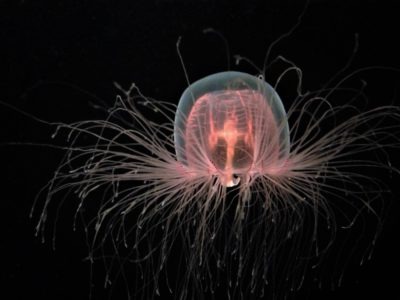
Immortal Jellyfish
Excellent hitchhiker on long-trip cargo ships
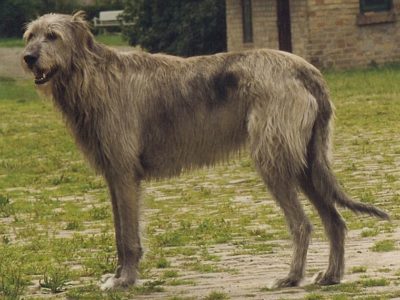
Irish WolfHound
Sweet-tempered, patient and thoughtful!
Newest Animals that Start with the Letter I
The most recently added Animals that start with the letter I.
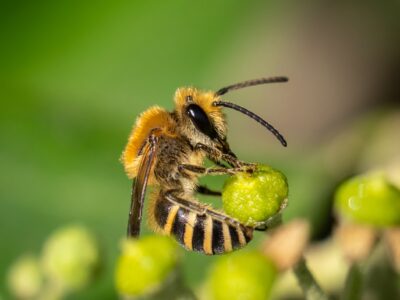
Ivy Bee
N/A
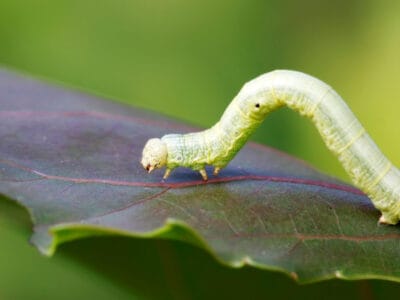
Inchworm
Inchworms have no legs in the midsection of their body.

Irukandji Jellyfish
Tiny ocean killer
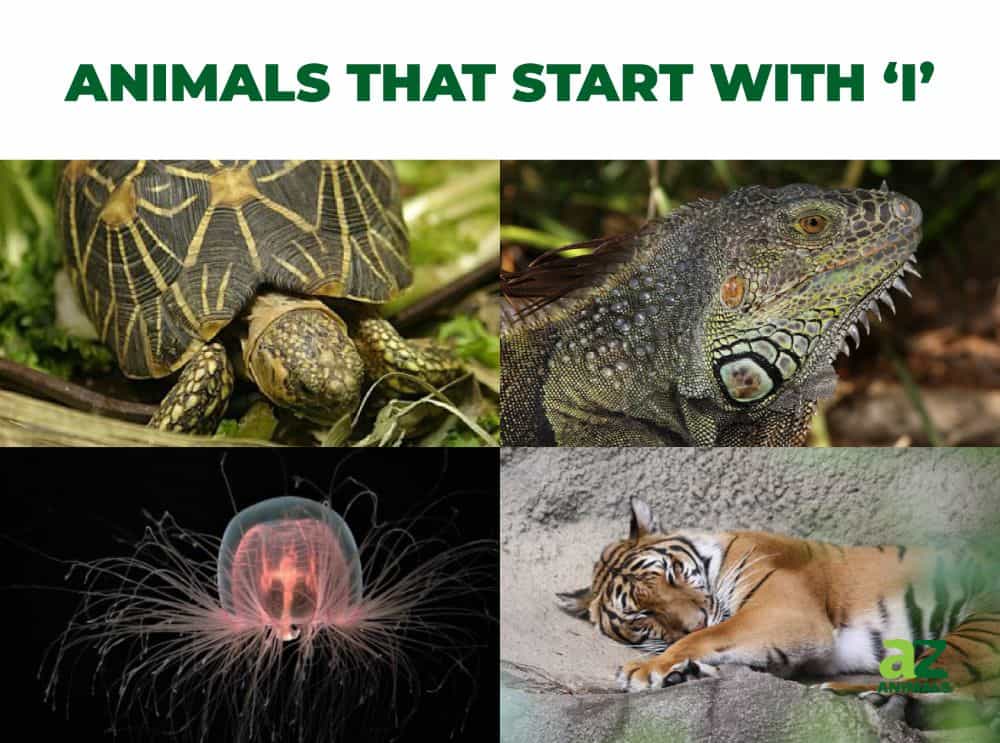
Animal by Letter Lists
- Animals that Start with A
- Animals that Start with B
- Animals that Start with C
- Animals that Start with D
- Animals that Start with E
- Animals that Start with F
- Animals that Start with G
- Animals that Start with H
- Animals that Start with I
- Animals that Start with J
- Animals that Start with K
- Animals that Start with L
- Animals that Start with M
- Animals that Start with N
- Animals that Start with O
- Animals that Start with P
- Animals that Start with Q
- Animals that Start with R
- Animals that Start with S
- Animals that Start with T
- Animals that Start with U
- Animals that Start with V
- Animals that Start with W
- Animals that Start with X
- Animals that Start with Y
- Animals that Start with Z
Thank you for reading! Have some feedback for us? Contact the AZ Animals editorial team.




